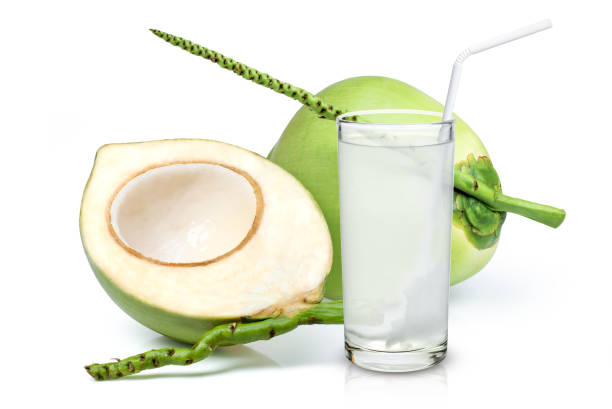How much coconut water should you drink to lower blood pressure?
"One or two 8-ounce servings, once or twice a day, should be generally safe to drink." But drinking coconut water when you already take medication for high blood pressure or other supplements could lower your blood pressure too much.
Is coconut water good for high blood pressure and cholesterol?
Reduces Blood Cholesterol
Coconut water is said to reduce levels of triglycerides and blood cholesterol, thus helping hypertension patients.
Sipping from a coconut may evoke magical thoughts of warm, sandy beaches, but is coconut water good for blood pressure if yours is high? It's true that high BP can be managed with diet, exercise and medication. And when it comes to your diet, coconut water might help — just don't go too nuts.
Coconut water is made from the liquid inside young coconuts, unlike coconut milk, which is made from the meat inside mature coconuts. It's high in carbohydrates and electrolytes like potassium (you'll hear more on that later), according to the U.S. National Library of Medicine (NLM).
Blood pressure is the force of blood that pushes against your arteries with each heartbeat. A normal blood pressure is 120/80 mm Hg (millimeters of mercury), according to the Centers for Disease Control and Prevention (CDC). The top number is your systolic blood pressure and the bottom number is your diastolic blood pressure.
High blood pressure, also called hypertension, can put you at greater risk for strokes, heart attacks and kidney disease, but it's often called a "silent killer" because you don't know when it's elevated, says Melissa Prest, DCN, RDN, a registered dietitian with Kidney Nutrition Specialists in Chicago, and a spokesperson for the Academy of Nutrition and Dietetics.
And your diet, as well as other factors, can have an impact on your high blood pressure, the CDC says.
Coconut Water and Blood Pressure
Potassium, one of the electrolytes in coconut water, can help lower blood pressure, according to the American Heart Association (AHA). AHA says that potassium-rich foods can help manage high blood pressure because the electrolyte helps reduce the impact sodium has on the body (sodium can raise your blood pressure) and reduce the tension on the walls of blood vessels, which also helps lower blood pressure.
But on the actual human effects for blood pressure and coconut water specifically, strong evidence is lacking.
One human study on coconut water and blood pressure, published in West Indian Medical Journal in January 2005, included just 28 subjects with high blood pressure. It found that 71 percent of those who drank coconut water for two weeks experienced a significant decrease in their mean systolic blood pressure (top number), as compared to those who only drank bottled water. Of that same group, 29 percent had a significant decrease in their mean diastolic blood pressure (lower number).
Another group was given both coconut water and another tropical tree-based drink called mauby. In that group, 43 percent had a significant decrease in their mean systolic blood pressure, and 57 percent had a significant decrease in their diastolic blood pressure, when compared to the bottled water drinkers.
Although the study found significant decreases in blood pressure for both groups who were given coconut water, additional studies with more subjects are needed to properly assess the benefits of coconut water for blood pressure management.
And, while the potassium and blood pressure link is clear, the Academy of Nutrition and Dietetics stresses the importance of getting potassium from a variety of foods rather than relying solely on coconut water. According to the NLM, some good sources of potassium include:
- Chicken.
- Salmon.
- Broccoli.
- Sweet potatoes.
- Bananas.
- Kiwi.
- Milk.
- Yogurt.
- Nuts.
Coconut water is likely safe for most adults without any serious side effects, Prest says. "One or two 8-ounce servings, once or twice a day, should be generally safe to drink."
But drinking coconut water when you already take medication for high blood pressure or other supplements could lower your blood pressure too much. To safely sip, the NLM advises you take extra caution and talk to your healthcare provider if you:
- Take medication for high blood pressure.
- Take any supplements.
- Are pregnant.
- Are scheduled for surgery.
- Have cystic fibrosis.
- Have kidney problems.
- Have high potassium levels.
Also, check out the label on your coconut water, the Academy of Nutrition and Dietetics advises. There's often more than one serving in a container, so be sure to do the math to figure out how many calories and how much sugar you're really drinking — it can vary from brand to brand depending on whether additional ingredients are added.






